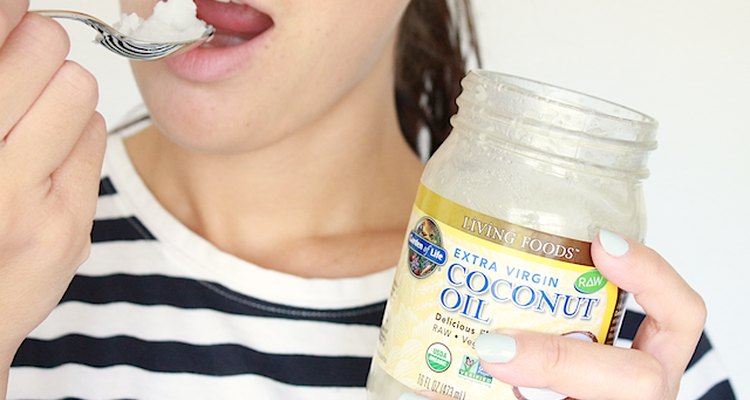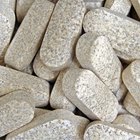
Lilly Wallace
Over the past few years, the number of coconut oil jars occupying the shelves of grocery stores has rapidly increased in response to the many health benefits that have been claimed for it. Although some of these claims are still the subject of controversial debates, some skin benefits of eating coconut oil have been supported by studies and testimonials. These studies suggest that coconut oil may be a useful dietary addition for anyone trying to achieve healthy skin naturally.
Anti-Inflammatory Properties
Dermatologists recommend following a diet rich in anti-inflammatory nutrients, as many skin disorders, such as acne, are caused by inflammation. Coconut oil has displayed an inhibitory effect on chronic inflammation. Both c_apric acid_ and l_auric acid_, which are present in coconut oil, have strong anti-inflammatory properties, and have been proven to be effective against Propionibacterium acnes, a commensal bacterium that is thought to be involved in acne inflammation.
Antioxidant Properties
Eating a diet rich in antioxidants is considered essential to having healthy skin. Antioxidants protect the cells from the harmful effects of free radicals, which are responsible for collagen damage, and consequently, premature aging (such as wrinkling).
Being rich in polyphenols, which are powerful antioxidants, coconut oil may contribute to restore the antioxidant balance and reduce inflammation, as a study showed. Polyphenols have also been studied for their photo-protective properties and have been proven to be an effective supplement for sunscreen protection, reducing the risk of UV-induced inflammation. Because of its high saturated fat content, doctors used to advise against eating coconut oil; however, recent studies suggest that saturated fat may be beneficial.

Lilly Wallace
An Alternative Therapy for Acne
Lab data suggests that coconut oil may be used as alternative treatment to the conventional antibiotic therapy for acne vulgaris because the bacteria responsible for the formation of this type of acne is sensitive to lauric acid. Lauric acid, which has strong, documented bactericidal properties is present in coconut oil in high amounts and has been shown to have even stronger antimicrobial properties than that of benzoyl peroxide, an ingredient commonly used in acne treatment.
Related Articles

Can Borage Oil Help Acne?

How to Reduce Acne Inflammation

What Are the Benefits of Extrapone ...

What Foods Provide Calcium D-Glucarate?

Benefits of Shea Butter and Coconut Oil ...

Jojoba Oil Benefits

Side Effects of Monosodium Glutamate

Asian Secret to Removing Cellulite

Mineral Oil Vs. Olive Oil

Nutrition Information on Blueberries

Is Coconut Oil the Miracle Food It's ...

The Best Anti-Cellulite Supplements

Can Age Spots Be Reversed?

Symptoms of Adult Survivors of Child ...

Skin Care Products That Contain ...

Differences Between Roasted & Raw Nut ...

Bad Effects of Chocolate

Why Does the Tanning Bed Make You Happy?

Pycnogenol and Acne

The Best Vitamins for Sinuses
References
Writer Bio
Lilly Wallace is an Italian certified health and nutrition coach. She writes about beauty and wellness on her website GenuineGlow.com. Passionate about skin care, nutrition and fitness, she loves to inspire her readers to pursue a healthy, eco-friendly and sustainable lifestyle.